Don't wanna be here? Send us removal request.
Text
What does it mean to be "in the wake"?
We started this semester's class off with literary theory... which is always a bit nerve-wracking to approach, but after conversing about it during class, I feel more comfortable articulating my thoughts (classic Dr. Morrison <3).
Christina Sharpe's In the Wake: On Blackness and Being is a thick, jungle of a read that pushed our class to think deeply about the history and continuous presence of racism. The concept of “the wake” was a bit abstract for me at first, but I came to understand it best through one of Sharpe’s own questions: “How does one mourn [an] interminable event?”. We live in a country desperate to "move on" yet its legacy is INESCAPABLE, especially in the continuous dehumanization of the Black community. Sharpe's work forces her readers to confront our country's present and the fact that we live in "the afterlife of property", a reminder that Black people were once a considered legal commodity and the effects of the systems built on that commodification still exist.
The more we understand our past without the rose-colored filter, the more we can recognize the lies that hold us back. When people refuse to acknowledge how systemic racism persists, when they claim we are “past” slavery while benefiting from the structures it built, they are engaging in active violence against the very communities they wish to forget. Only through truly HONEST education and exposure (for everyone, not just Black people) can we begin to disrupt the hold that keeps our society stagnant in its willful ignorance.
0 notes
Text
"Long Black Song"'s Complicated Plot
In "Long Black Song", Richard Wright dives into a short story detailing his take on deep-rooted power dynamics in regards to gender and racism. This power dynamic is especially depicted in the main character, Sarah's, sexual interaction with the young, white salesmen. Richard Wright utilizes specific language which seems to make the encounter's true nature quite ambiguous (I wonder if this is on purpose or due to his generally misogynistic writing style of women 👀)
In the beginning of the story, Sarah daydreams about her ex-lover, Tom, who she used to work in the fields with before meeting her current husband, Silas (she clearly does not love Silas nearly as much as she was happy with Tom... just saying). While daydreaming, she reminisces on her past "experiences" with Tom saying they were "long black and white nights" and remembering that "sweet pain".
Then, a young, white man comes to the house with the intention of selling clocks before he goes to college. In this encounter with the white man, Sarah begins the interaction with a sort of infantilizing perspective saying things like he's "just a little boy", and by the time she is giving him water, she is saying "but he's a white ". Sarah's mind seems to link the experience to her times in the fields with Tom using the same expressions that she used in her daydreams. BUT does this mean that it was a welcomed offer or was it still assault?
I'm still not fully convinced that she was not assaulted and/or at least manipulated through coercion due to the existing power dynamics. Even if Sarah was tempted, even if she was initially interested in the way things were going, she did say no. And not to be cliche, but no MEANS no. Point black period. Personally, at that moment when she resisted and said no, it became assault. We held a discussion in class about this exact topic and I feel like we didn't touch on the racial power dynamics as well. There is something to say about his innate power being not only the man in this situation but also a WHITE man at that. So, even if she was not originally threatened by him due to his youth, his whiteness itself gives him some power in her home. It would not be the only occasion where a white man acted on their ability to take what they wanted from a Black woman without consequence. I believe that she DEFINITELY would have been tempted to cheat on Silas eventually (because let's face it, it was a loveless house), but this wasn't that. This was a heavily nuanced story of coercion and the illusion of choice... or maybe it wasn't assault and I am viewing it with an entirely too modern point of view! I guess we'll never know 🤷🏾♀️
0 notes
Text
My Hair Journey
from ENGL 3185- Black Hair Narratives
“Can you lend me some of your hair?”: I’d let out an awkward giggle seated in the all too familiar chair. No matter the salon, it’s always the same chair. The chair that holds so many memories. I’ve been acquainted with this stylist chair for as long as I can remember. Our sweet introduction happened through my mother’s friend, a hairdresser. Every visit, she would meticulously blow out my hair and put it cute little ponytails. People in the salon would often turn to my mother, congratulating her for having a daughter with such strong hair. They would indirectly praise me for not being tender headed, as if it were some kind of superpower. Soon, I began to take pride in these compliments of this so-called special strength.
“Which beads do you want?”: When we moved to Germany, my mother took on the role of my loving hairstylist, and it seemed like that professional chair would become a distant memory. We would sit in the living room, an insignificant movie playing in the background, and she would adorn my head in colorful beads and rubber bands. I have blessed to have a mother who paid special care to my hair and learned to style it despite our different textures. She was no professional, but she always made sure I felt beautiful in any style from her mental reservoir. From two-strand twists to braid crowns to a press (always and only for special occasions of course), my mother continued to amaze me with her skill, even if she burned me with the flat iron those few times. However, as my hair grew exponentially and her schedule became busier, our home salon appointments slowly dwindled.
“Maybe beauty really is pain.”: I met the stylist chair once again a couple of years later when I was introduced to the world of box braids. It was the first time, from my own memory, that the stylist chair had genuinely hurt me. Until now, I had been praised for not being tender headed because of my long history with cornrows and various braids and twists. However, this was another level of pain. It was my first time at an African hair salon and neither my mother nor I knew what we were getting into. I placed her hand on my scalp, desperate to make her feel the agony I was enduring. The braids were so tight that my scalp was swelling around each part. I cried going home. I cried going to sleep. I cried going to sleep. Simply moving the braids was misery. After a week, the swelling had gone down and I finally could look at my hair without pain-filled eyes. They looked beautiful. Finally, I got to have long, beautiful hair. Don’t get me wrong, I cherished those moments in the mother-daughter salon, but these braids were a different kind of beautiful. A whole new world.
“Oh… just make sure the bow is facing the front.”: My hairstyles shifted when we moved to Texas due to my consistent involvement in sports. Instead of my mother’s twists or a puff, I pivoted towards braided ponytails and box braids. Cheerleading required my hair to have a certain kind of versatility, and the pressure to have my hair “done” was constant. You can assume what my cheer coaches looked like, so I alone would panic if we had a game coming up and my hair “wasn’t done”. Box braids gave me access to the privilege of choice granted to everyone else on my team. They became my version of the “faux straight hair” that everyone else had, granting me freedom to alter it whenever I fancied without a weekly 8-hour commitment. If I needed to curl them, I could. If I wanted to do an updo, I could. Box braids made me feel included without the damage of constantly straightening it.
“You have too much hair…”: At some point, what was once a blessing morphed turned an inconvenience. I found myself feeling sorry for whoever was doing my hair. I would preemptively apologize to any new stylist, verbally acknowledging the incoming challenge before they started. Once again, I’d let out an awkward giggle, only this time, for stylists’ complaints. “We’re going to be here all day,” and “it’s just too much.” Admittedly though, I get it. There’s a reason why I keep my hair in protective styles. I know the effort required to “tame” my hair. Washing it? An arm workout. Drying it? Takes forever. I had come to embrace my “special power” in my voluminous hair with its beauty and challenges, yet in the eyes of others, its complexity created a different attitude.
“You want something NEW?”: The pandemic started during my first year of high school, and once more, the stylist chair and I were separated. I took this time to finally get to know my hair without the help of my mother. I washed my hair completely by myself for the first time and learned some basic styles to do on myself which filled my parents with much pride. When salons reopened their doors, I decided to step out of my comfort zone of the typically box braid. I experimented with different lengths and styles including passion twists, goddess braids, and many more; I even straightened my hair (not for a special occasion though). In spite of the initial nerves that came with attempting new hairstyles, I eventually awaited the day my hair would grow out to embellish it with something fresh.
The styling chair and I have shared so many memories. It has been consistent in my journey of self-discovery with my hair and all my best and worst phases. Whether in a professional’s chair or working independently, my hair has grown to be a display of my evolving style and individuality, and I am still so proud of my so-called superpower.
0 notes
Text
Is Femininity a Cage?
The concept of femininity is a constantly evolving idea. There are so many intricate dynamics including societal norms, stereotypes, and expectations imposed on people who wish to achieve femininity. People tell women to act a certain way in order to be accepted in society, but when they execute this role, it looked down upon. As a girls grow up they realize that there is no room for any other lifestyles if you want to be accepted as feminine and wanted.
One of the classic portrayals of femininity is becoming a housewife. As a young woman, you find a man, ideally wealthy, settle down, have 2.5 kids and a dog, and maintain the house while your husband slaves away at work to provide. This is the core life of a housewife. Keep the house and her husband and kids happy.
While they are at home keeping the house tidy, however, the man will come in from his tiring job, pay no real attention, love, or thanks to their wife, and ask for a service such as food or a sweet kiss to make him feel better. Slowly but surely, they degrade their wives in their own home into being a live-in maid, given insufficient love and appreciation (which they are supposed to take and accept).
Now, the housewife is dependent on her husband not only for money since he is the only one providing, but also for validation, as she probably does not leave the house too much with all of the work she must do. There is a power dynamic no matter how much the man loves or “loves” her because he is autonomous and can live without her and she becomes disposable to him and less valuable and he treats her as such.
Extreme? Maybe. Maybe not.
This trope was not uncommon to see decades ago and if you truly pay attention, it's not so uncommon to see currently either. So I ask you... Do you think femininity is a cage? Or a more easier question might be..
Could it be?
What changes can we make to society to rewire this definition of femininity?
♡ dearthinkingoutloud
0 notes
Text
Image Analysis: The Mending Wall
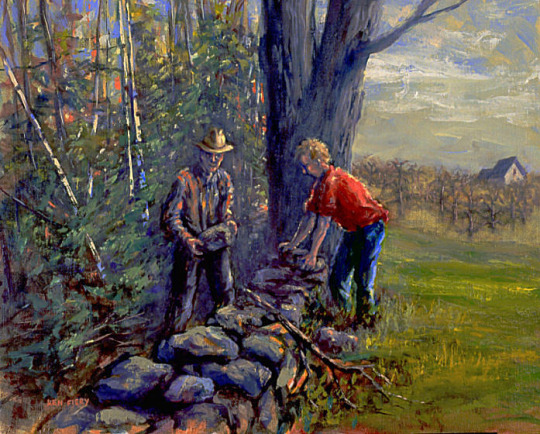
One of the poems we read this semester was "Mending Wall" by Robert Frost. The free verse poem is from the perspective of one neighbor telling the readers about an unnecessary stone wall that he and his neighbor rebuild every spring as seen in the painting. The narrator acknowledges that there is no use in continuously fixing this wall every year seeing as the only difference on each property is the breed of trees they own, but the other neighbor only says, "Good fences make good neighbors."
In this picture, I assume that the second neighbor is the man on the left because he seems to be older than the other man. It is more common for the older generation to be stuck in their ways regardless of the practicality. The purpose of the "Mending Wall" is to ask the question: why do we continue to build walls up against each other where they are unnecessary? This "fence" that the narrator's neighbor speaks of is not a fence at all. It is a stone wall. A useless wall designed to keep people out. It's a literal and figurative sign of separation. In his poem, Robert Frost begs the reader to think about the traditions that our society upholds even though they can inherently stop us from connecting with each other.
♡ dearthinkingoutloud
0 notes
Text
Image Analysis- Bloodchild (Yikes...)
youtube
When we read "Bloodchild" by Octavia Butler, I listened to this video and this photo along with the tone of which the man was speaking only made it ten times more creepy. "Bloodchild" is a science-fiction short story in which humans, specifically men and boys, are used as breeders and impregnated by alien figures as payment for living on the alien planet... It sounds... unappealing to say the least, right? Imagine listening to this and this is the picture that is clear in your head. This is the alien who is using and, from my perspective, grooming this boy into using his body; meanwhile, the alien is telling the boy that she loves him and that they have a loving relationship. This picture only increased my level of disgust with the main alien figure as well as my discomfort with finishing the story.
♡ dearthinkingoutloud
0 notes
Text
Response to Kha: A Common Predicament
In this post, I wanted to respond and build on Kha's Reflection Blog #7 which can be found here!
His reflection touches on the arguably most frustrating story have read about throughout this entire semester: "Eula", a short story taken from The Secret Life of Church Ladies by Deesha Philyah. Like Kha explains, "Eula" details the secret affection shared between two women or "church ladies" in which one, Caroletta, has deeply set feelings for Eula, but Eula continues to own her desperate search for a husband. The twist is... Eula also likes women. In fact, Eula reciprocates Caroletta's romantic feelings, however, she has her mind set on finding a husband. She knows she will not be happy with a husband, but as a "church lady", that is what is expected of her, so in the end, she decides to reject her feelings towards Caroletta (even though they still have sex on the side).
Our class consensus in relation to this story was that everyone was obviously frustrated with the ending and the lack resolution. Now, this is a valid reaction. Who likes stories without resolution? What is the point of having so much conflict if not to figure it out in the end? Or like Kha asked, "why can't Caroletta just move on or say [the] facts straight to Eula's face so that this madness can finally end?"
Personally, as much as this story was aggravating, I loved it. I enjoyed for the same reason that I enjoyed Everything I Never Told You by Celeste Ng: it was painstakingly realistic. There are so many closeted people in the world in this exact or similar situations; there are those who are terrified of coming out and living inn their happiness and those in Caroletta's shoes who endlessly pine after someone who unable to accept themselves for who they are.
So, while I agree with Kha's analysis of the short story and our class's irritation with the conclusion, I hope we can all learn to also appreciate the rawness and reality in the lack of a "happy ending".
♡ dearthinkingoutloud
0 notes
Text
Response to Ica: Female Vs. Male Gaze
youtube
♡ dearthinkingoutloud
1 note
·
View note
Text
If you liked this movie/book, you might also like... (pt. 3)
If you liked this,
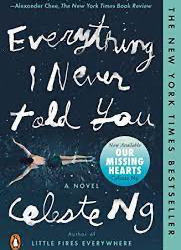
Then you might like these...
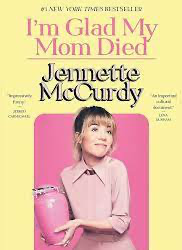
and HEAR ME OUT...
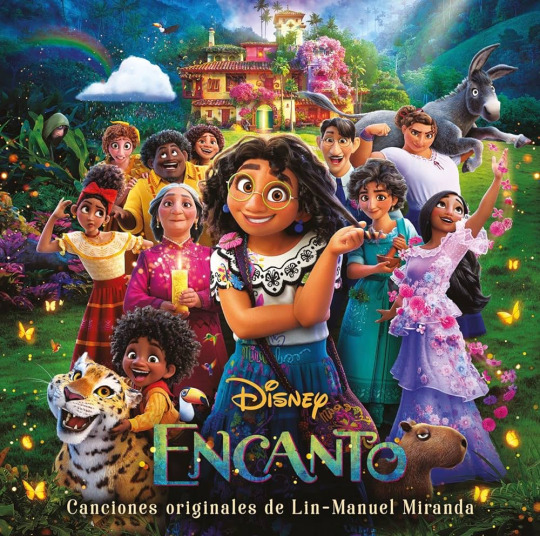
Ok... HEAR ME OUT, it may seem like the plot is too far off from the rawness of Everything I Never Told You,
BUT LISTEN!!!
Encanto is a movie about a Colombian family who are blessed with magical powers seemingly except for the main character, Maribel, who, in turn, is neglected by her family. When her family's magic begins to fade, she embarks on a journey to uncover the source of the dwindling magic. On this journey throughout the movie, she learns to accept her individual talents and eventually confronts her family about the way they treat her.
This movie teaches the viewers that no one has to be exceptional to be deserving of love, safety, and eventually rights, and I think that it can be directly related to Hannah's character in Everything I Never Told You. In Everything I Never Told You, Hannah is the youngest and forgotten daughter out of three children of which Lydia, the middle child, is the most favored and receives the most attention. By the end of the book, Hannah finally receives the attention that she deserved the entire book only due to her sister's death. Encanto tells the opposite side of the familial situation, the perspective of the forgotten member of the family.
In I'm Glad My Mom Died, Jennette McCurdy recounts her rocky relationship with her abusive mother growing up as a child TV actor. McCurdy exposes the darkness behind the pretty faces and seemingly wholesome people in Hollywood and how her mother's overbearing behavior towards her negatively affected her forever. She touches on how her mother spoke to her and forced her to do certain things led to her terrible relationship with food as well as addiction and her subsequent journey to reclaiming control over her life.
While Lydia was not able to reach the same fate as McCurdy in Everything I Never Told You, McCurdy's memoir is an excellent follow up book to pick up dealing with a similar topic (please search up trigger warnings for this book). However, if you are in more of a lighter movie mood, Encanto is also a great choice which engages the subject of generational trauma in a digestible way.
♡ dearthinkingoutloud
0 notes
Text
If you liked this movie/book, you might also like... (pt. 2)
If you liked
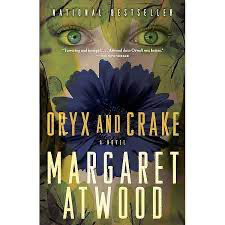
Then you would also like...
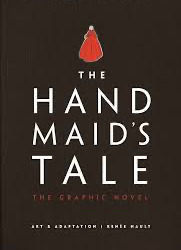
AND...
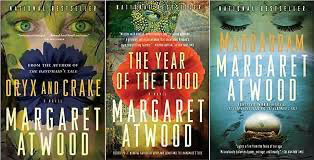
This may seem like a cop-out answer, but if you liked Oryx and Crake by Margaret Atwood, then you might like the rest of the MaddAddam trilogy as well as The Handmaid's Tale. At the end of Oryx and Crake, there is a cliffhanger preparing the readers for the next two books of the series.
I have discussed this book in a book review inn another post that you can check out here, but if you don't want to read that, here is a short summary of the story. Oryx and Crake is a dystopian novel with elements of science fiction and romance who follows a man, known as Snowman, who reflects on his past choices while grappling with the consequences of a dying world, largely due to his own actions. The story revolves around his complex relationship with his childhood friend, Crake, who devises a plan to cleanse the Earth of its perceived imperfections.
The rest of the series examines the morality of Crake's decision and who is most responsible in this kind of relationship of man vs. man as well as man vs. science.
I haven't read The Handmaid's Tale yet, however, if you enjoyed the writing in Oryx and Crake, Margaret Atwood's beautiful writing is not lacking The Handmaid's Tale as far as I have read. The Handmaid's Tale is another dystopia diving into the lives of women in a totalitarian society where their identity and fertility are systematically controlled.
So, if you enjoyed Margaret Atwood's writing style and appreciate her skills as an actor in general, I recommend reading Margaret Atwood's The Handmaid's Tale. If you want to find out what happens next at the end of Oryx and Crake, then I highly recommend finishing the MaddAddam series.
♡ dearthinkingoutloud
0 notes
Text
If you liked this movie/book, you might also like... (pt. 1)
This concept are some of my favorite videos to watch on YouTube/BookTube (Youtube videos about books) or booktok (tiktoks about books), so I thought I would try my own version with some of the books and readings we discussed in class! In this post, I will recommend you, my viewers, a form of media based on some of the literature my class discussed this semester.
If you liked
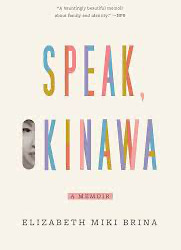
Then you might also like...
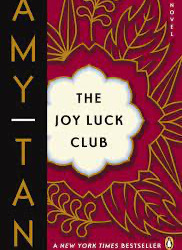
I read the Joy Luck Club by Amy Tan in my senior year of high school as a choice novel and THOROUGHLY enjoyed it! The Joy Luck Club is a fictional story about 4 Chinese mothers who emigrate to San Francisco, meet, and become friends through a tradition of playing mahjong and telling stories about their past. The story is told from the many points of view of the mothers as well as their daughters growing up as first-generation Chinese-Americans. Similar to Speak Okinawa, the book tackles the complicated relationship between mothers and daughters of different backgrounds and generations as well as the distorted idea of fulfilling the "American Dream."
Amy Tan does a wonderful job as depicting the struggle of navigating two different cultures as first-generation immigrant children and how this struggle can create a strain between the parent and child. In this instance, the mothers desperately want what is best for the daughters and constantly try to immerse them in their culture, but the daughters brush off their mothers' efforts complaining that it is overbearing. The daughters don't understand their mothers' sacrifices and the magnitude of their love until they grow up and experience hardships in adulthood.
Elizabeth Miki Brina tells a similar story in her memoir, Speak, Okinawa, about her growing up as a second-generation immigrant of a white-American father and Okinawan mother. Along with this, her relationship with her mother suffers as Brina goes through the unfortunately common internalized racism amongst mixed-race children.
Both stories touch on the hardships that come with differing backgrounds between immigrant children and their parents as well as the relatable minority experience especially amongst Asian-Americans.
♡ dearthinkingoutloud
0 notes
Text
"I wish I was a normal girl." (Pt. 2)
Pre-reading: Listen to "Normal Girl" by SZA
youtube
I was almost disappointed that I couldn't think of a song that felt with with this phenomenon written by a person of colour. Someone who would be even more relatable to me on this subject. And then, Viola! I remembered this song 10 minutes later. In "Normal Girl", SZA perfectly dictates how it feels to be dating as a black woman especially outside of your own race. Though it is definitely not always better to date within the race, there are specific experiences that seem to be universal to many black women interested in relationships.
Almost every young girl fantasizes about their crush liking them back, getting a confession, and finally, getting into a perfect, happy relationship and a happily ever after. This fantasy, however, is unfortunately not a common occurrence for black women and girls in the dating scene. As a young black woman who grew up in predominately white environments, I remember watching all my friends getting into relationships and experiencing real romantic romantic attention from others. Of course, I awaited the day that this wonderful daydream became reality for me, but that day did not come for me.
In the first verse, SZA sings...
"you love the way I pop my top Or how I lose my cool"
and
"Love the way I pump my fist or how I bust my hip For your affection, tryna be down"
This verse highlights the things about her that her partner loves. He loves when she "over-the-top" and when she preforms to be hyper-sexual and to get his attention. They loved when she fit the stereotypical behavior of black women. Outspoken. Aggressive. Seductive. Because her partners love when she behaves this way, she plays the part hoping to garner their approval. In the midst of this, she wonders if they would stick around if she didn't go out out of her way to act this way. The uniqueness that her partners enjoy so much is unlike her and this breed insecurity in the realness of her relationship.
As I observed my friends enjoying the pleasures of genuine love (at that age), the attention I received disappointed me. Instead of the sweet, puppy love experienced by my peers, the little attention I received was in sexualizing me. Slowly, I stopped hoping for the affections given to my peers when I noticed the the people that were receive the attention I longed for never looked like me. Like SZA, I desperately wished to break free of the stereotypes and be loved for who I genuinely was.
In the pre-chorus, SZA sings about this sentiment saying...
"Wish I was the type of girl that you take over to mama"
"The type of girl, I know your fellas they'd be proud of"
and after, in the chorus...
"how do I be your baby?"
"I wish I was a normal girl I'll never be, no, never be a-, oh"
She wishes she could be a "normal girl."
To be treated like a "normal girl."
To be loved like a "normal girl."
Unfortunately, it is not uncommon for minority women to experience fetishization especially in predominately white areas. These women are often objectified and reduced to mere stereotypes. They are are looked at as a "hot commodity" but not relationship worthy. Worth a try, but not worth it to stay and be serious. Since many minority women don't fit the ridiculous beauty standard amongst men, they are not treated with proper respect, thus reducing the chance of human connection to a "notch on a belt."
In Speak Okinawa, we are given Elizabeth Miki Brina's real encounter with this disgusting phenomenon as she begins to be interested in dating. When Brina was fourteen, she developed a crush on this boy and as he gave her any kind of attention, she obliged. When he said she would look better with her natural hair that was then blonde, she dyed it back. Eventually, he tells her that he will let her give him a blowjob.
He doesn't say: "Hey, you're so pretty!"
He doesn't say: "Can I take you on a date sometime?"
He doesn't even say: "I want you"
Which... would be awful anyway. He said, I will let you give me a blowjob, implying that it would be a pleasure to get this kind of request from him; and, because she had never received any kind of romantic advances before, she took this as "a token of kindness... [of] want and want means value," (77). Sadly, she learned the hard way that the opposite is true when the real romance did not follow this sexual request. There was not holding hands, dates, long phone calls, cuddles, or kisses. He did not really want her. He simply wanted to exploit her for who she is "one of the only Asians in a ninety-nine percent white town," and this is confirmed through the last sentence on page 78.
"The cute boy who let me give him a blowjob ends up dating a blonde anyway."
In that moment, Brina didn't know yet that she was being fetishized.
That there was nothing wrong with her.
That it was their "[entitlement]," and her so-called foreign uniqueness that made her, "undateable," to others (79).
That she would not be treated like a "normal girl."
♡ dearthinkingoutloud
2 notes
·
View notes
Text
"You were holding out to find the opposite." (pt. 1)
Pre-reading: Listen to "opposite" by Sabrina Carpenter
youtube
The first time that I heard Sabrina Carpenter's song "opposite", I was enjoying her DC stop on her Emails I Can't Send Tour. She had released her album by the same name a few months before her tour announcement and I BEGGED my parents to let me go. After being a fan of her for eight years, I would finally be able to see her in concert as my first concert without my parents! I studied the entire album for months (as if I wasn't already listening on repeat) leading up to it when suddenly, she released four extra songs including opposite. I listened to one of them before the show but wanted to experience the rest of them live, so I decided to save the other three for the concert on May 14.
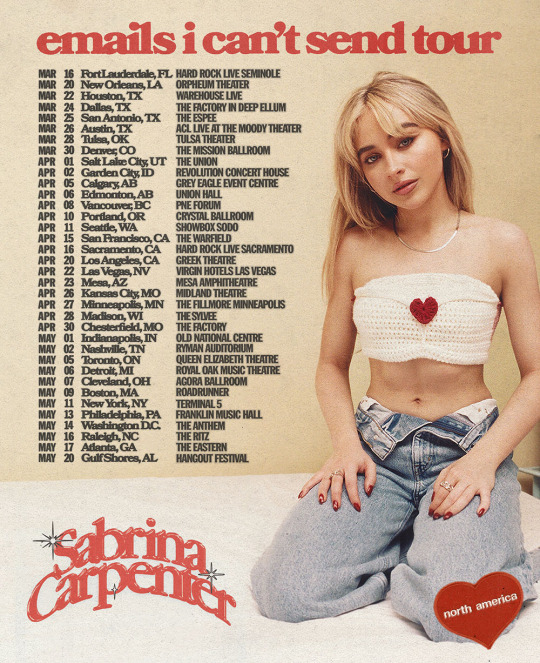
When she finally played "opposite," I was listening intently to the lyrics and immediately broke down. With all of the adrenaline and energy in the room combined with the lyrics, the tears came quite quickly. The first lyrics alone...
"Oh, so you do have a type? And it's not me" and a few seconds later...
"If you wanted brown eyes I could have got contacts"
Now... I don't have blue eyes like Miss Carpenter, but I inverted it to fit my experience. In my head, she might as well have said, "if you wanted blue/green eyes." Like the TikTok I posted earlier stated, "this song is so WOC-coded (women of colour)," and so as soon as I related it to my life, emotions spilled out of me. In this song, she talks about the pain of someone you like or love moving on to someone else who looks opposite of you. Boy... does that sound familiar... As a black female who grew up in many predominantly white areas, this was unfortunately a common occurrence for me. On many occasions, I would develop crushes on people who expressed no reciprocated interest; in fact, they often looked the opposite of me. White or light-skinned. Blonde. Blue or Green eyes. This disappointing cycle continued so long that I started to look internally and wonder... is it me? What is it about me that you don't like? Are my eyes not special? Am I too dark? Too big? The people who did express interest in me were adults (gross, I know) and/or only sexual in nature which I quickly declined. My self-esteem and self-confidence took a deep decline very quickly.
At the end of the song, Sabrina sings,
"And I know now Even if I tried to change That somehow You'd end up with her anyway"
... which, as you can imagine, made me sob even louder. By then, I had learned the song and was able to sing it with her, so my new concert buddy and I began doing a cross of scream-singing and scream-crying to close out the song.
As a child into my teen years, I would await the day when I needed my ends trimmed so that I could have my hair silk pressed. I wanted to lose weight and didn't want to be taller. I was obsessed with Snapchat filters. They made my eyes bigger, my nose smaller, my lips the right size. I didn't fully grasp it then, but I had wished to look like the girls who everyone wanted (in my predominantly white school). That internalized racism villainized my natural beautiful features and made them the reason why nobody liked me.
In Chapter 8 of Speak Okinawa, Elizabeth Miki Brina recounts her teen years and how her internalized racism manifested in her actions. Previously, she had called herself racist terms, but when she turned thirteen, she, all of a sudden, tried to go by her Japanese name "Miki" (she didn't succeed since everyone had been calling her Elizabeth her entire life thus far). This may seem like a step towards embracing her Japanese side, but her internalized self-hatred (which she doesn't quite know yet) came out in her constant desire to have blonde hair, change her eye shape, and wear blue contacts. She continuously expressed how ugly her Asian features are and therefore, found ways to look different than her natural self. Her mom only feels further rejected by seeing how openly Brina despised the only part of her that was completely related to her mother.
As Sabrina Carpenter said, I know now that it was not me who was at fault or necessarily them for not liking me. Now, I have found love for my natural hair, skin, lips, nose, hips, height, and so on. Of course, I still struggle to love myself like most other people, but there is a clear improvement to my past mindset.
*Look forward to Part 2 in my next post!*
♡ dearthinkingoutloud
1 note
·
View note
Text
youtube
Nevermind... now another new post will be coming because I just remembered this song 😭
Before my next posts, please listen to both this song and "opposite" by Sabrina Carpenter for better context! They have similar ideas that I want to touch on further. Look forward to it soon!
♡ dearthinkingoutloud
0 notes
Text
After reading the book review...
♡ dearthinkingoutloud
0 notes